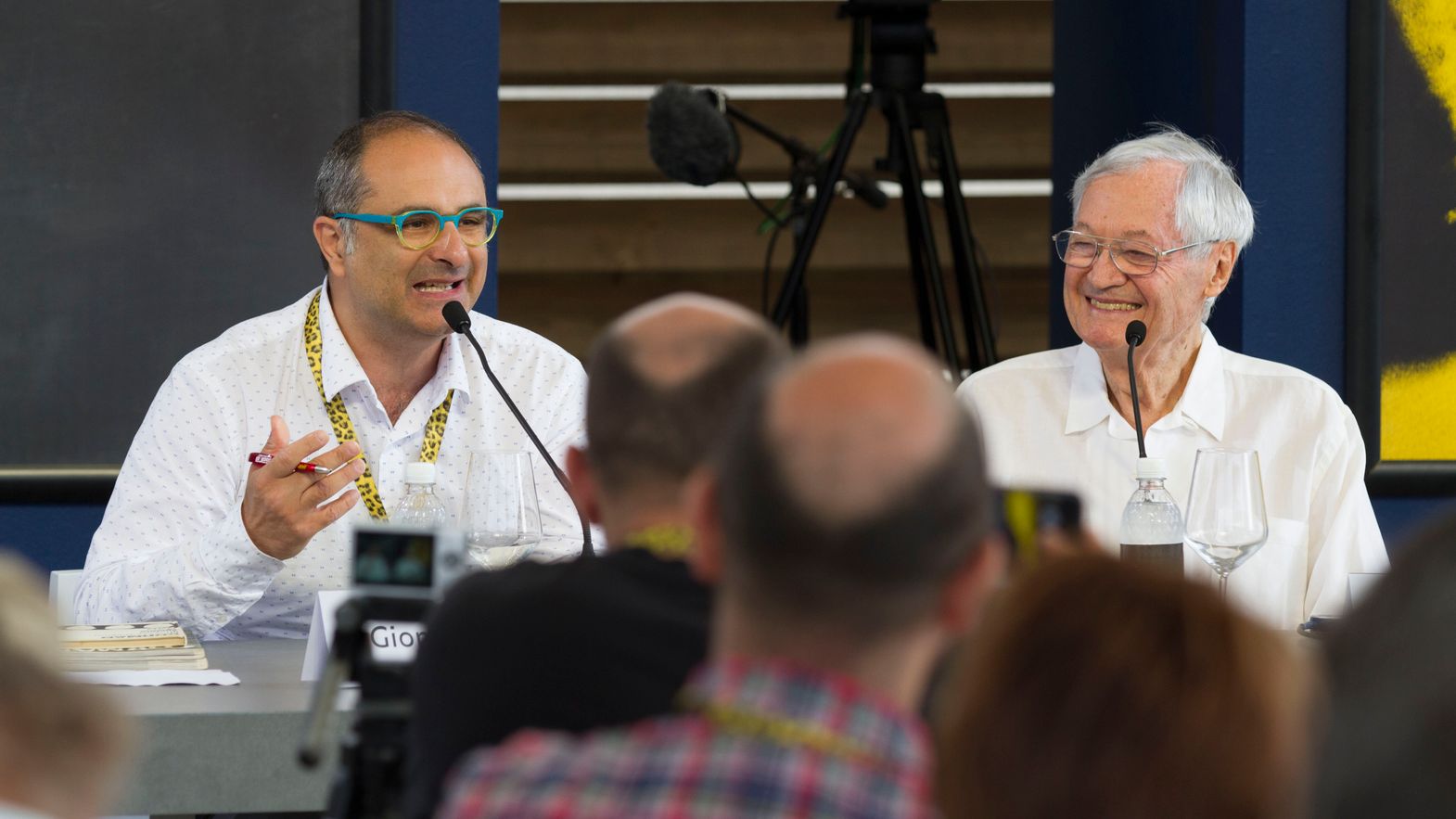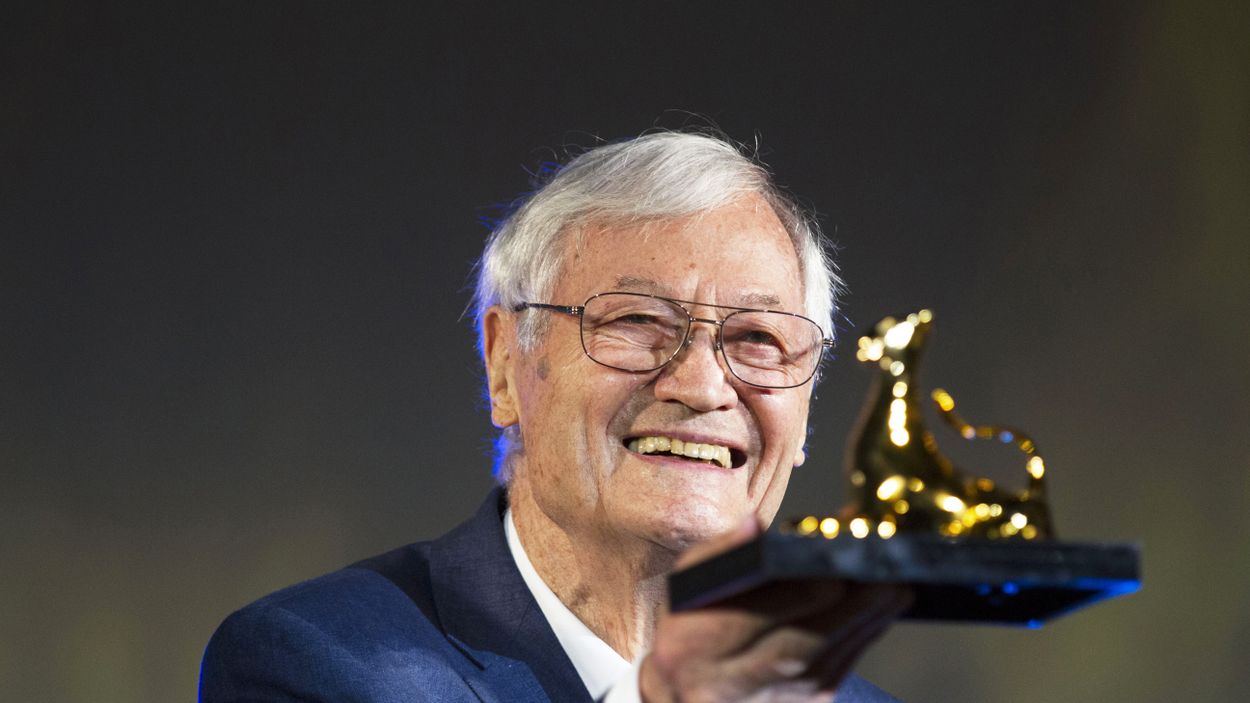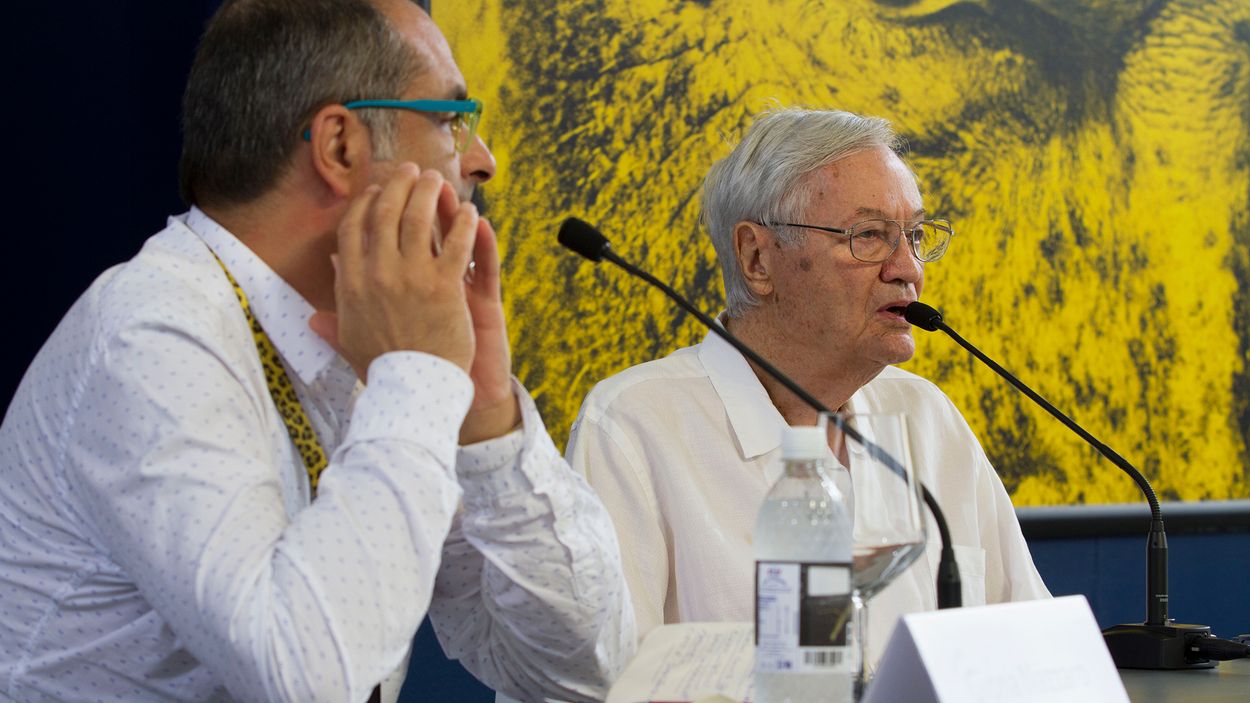 Giona A. Nazzaro and Roger Corman, Locarno 2016
Giona A. Nazzaro and Roger Corman, Locarno 2016
There’s no doubt about it: without Roger Corman, cinema would not be cinema. The filmmaker, who just turned 95, has seen it all. And his lesson (or rather, lessons) should serve as a warning to all those who periodically lament the death of cinema. Corman literally invented cinema. He invented young filmmakers. He came up with a social and political angle that wasn’t there before. His extremely low-budget films, with loudly magnificent titles, promised new, forbidden sensations, which were cheap and easy to recreate, but strictly for young people. On a not entirely serious note, he is to Hollywood what punk was to the British progressive. Moreover, he allowed his disciples to make a film even if up to the day before their job had been sorting through the mail. An entire generation embraced the opportunity: Francis Ford Coppola, Peter Bogdanovich, Ron Howard, Jonathan Demme, John Sayles, Denis Hopper, Martin Scorsese, Sara Driver, John Milius, Penelope Spheeris, Jonathan Kaplan, Carl Franklin, Jack Hill, Sylvester Stallone, Gale Ann Hurd, James Cameron, Paul Bartel, Monte Hellman, Lewis Teague, Allan Arkush, Jack Nicholson, Vernon Zimmerman and dozens of other names.
 Roger Corman, Locarno 2016
Roger Corman, Locarno 2016
Corman’s infallible vision even made it all the way to Switzerland, where he crossed paths with the legendary Erwin C. Dietrich for Ingrid Steeger’s cult film Ich, ein Groupie, with the great Peter Baumgartner as the cinematographer. His subversive lesson made itself heard in Brazil as well, with Glauber Rocha (who understood its freedom and political subtext) and José Mojica Marins, aka Coffin Joe, embracing it warmly. In Spain, Jacinto Molina, aka Paul Naschy, put his own stamp on low-budget cinema. Roger Corman, a refined and very cultured man, as the Locarno Film Festival attendees got to see when he gave a thrilling masterclass, is a man of cinema with no limitations (he also tells great stories about Cirio H. Santiago, Eddie Romero and Gerry de Leon). He’s a pragmatically savvy businessman, who respected the directors’ creative freedom as long as they complied with a handful of house style rules (the shower scene among them). His filmography is a map of the inner transformations of a collective feeling caught between the Vietnam war, the Watergate scandal, the civil rights movement, Woodstock and the downfall of the hippie utopia.

His Poe film series remains a reference point for anyone tackling the gothic (just ask Tim Burton). His AIP era films have collectively become classics of New American Cinema. What would the US film landscape be like without The Trip or The Wild Angels? Who has made a more lucid war movie than Von Richthofen and Brown? And, most importantly, who else would have dared make a film like The Intruder in the United States of 1961, when the Freedom Riders got attacked and murdered on the streets in the South, the same year a John F. Kennedy’s Executive Order 10925, which called for equal rights four years before the Voting Rights Act? Roger Corman is, quite simply, the cinema of the entire world. Without him, there would be no cinema. And today, as people once again lament the death of cinema, let’s think for a minute: what would Corman do? Or rather, what is Corman doing? He’s certainly at least one step ahead, yet again. And that is his fundamental lesson. Much like cinema, Roger Corman never stops.
Giona A. Nazzaro